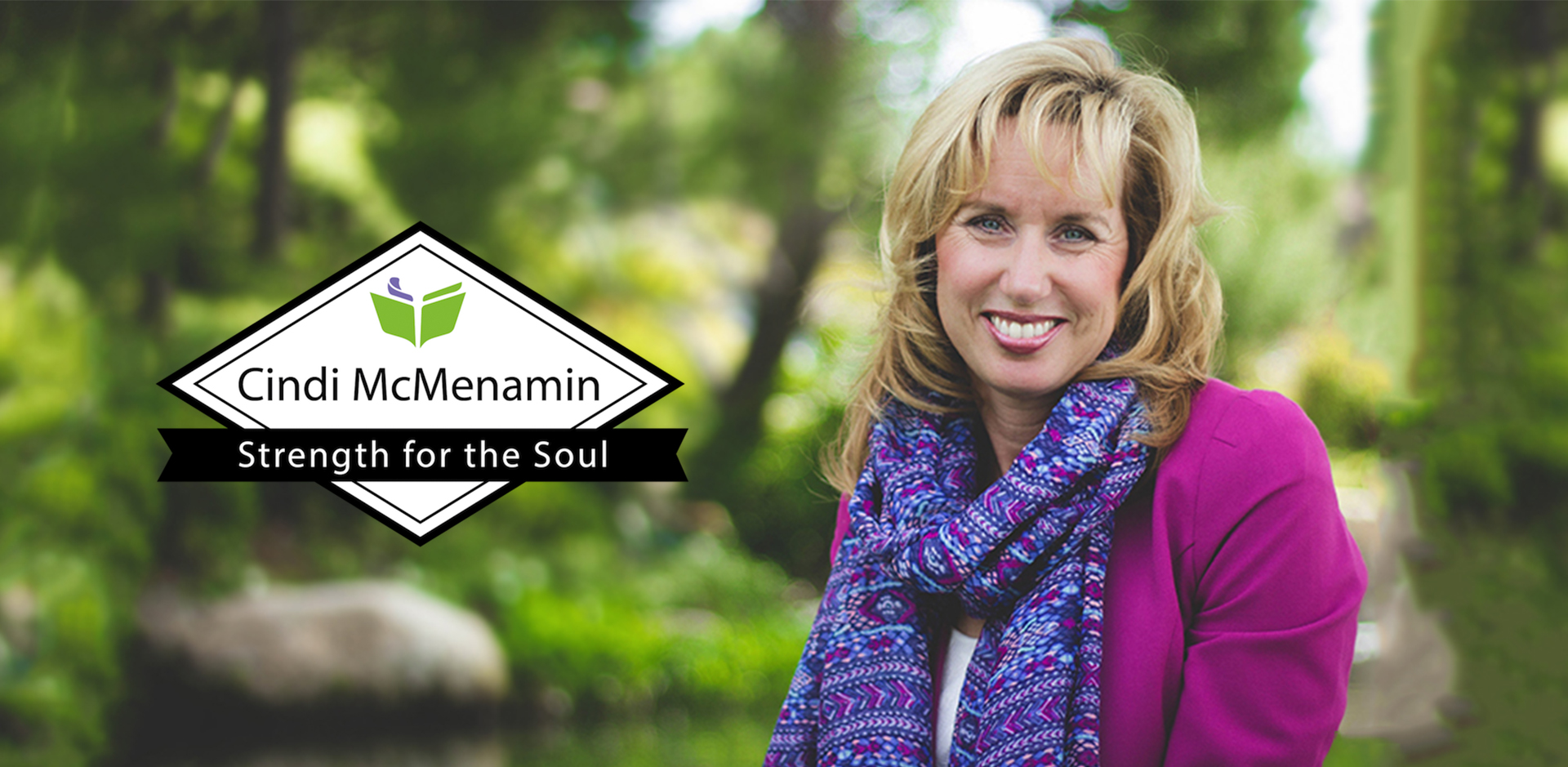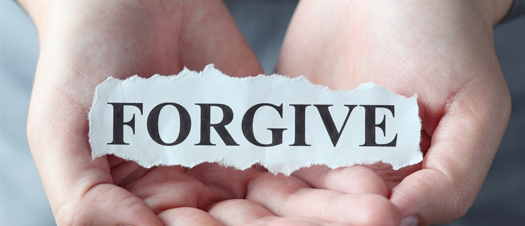There’s a reason you and I struggle with forgiveness.
But I don’t think it’s because of how deeply we’ve been wounded by another.
Having ministered to women for nearly three decades, I have come to believe that the main reason we often don’t forgive those who offend us is because we have several misconceptions about what forgiveness really means.
Do any of these conditions (or excuses) sound like yours?
- I’m still dealing with the consequences of how that person hurt me, so I’m not about to forgive that person.
- Why should I forgive a person who has never apologized?
- I’ll forgive him when he proves that he has changed.
- I never got resolution from this before he died so now I will have to live with his offense — and the inability to forgive him — forever.
- I refuse to let that person back into my life so forgiveness is not an option.
- I’ve lost track of that person through the years, so I can’t initiate forgiveness.
- What that person did to me wasn’t right so I can’t bring myself to let him/her off the hook.
Forgiveness is quite difficult, and in some ways impossible, if we believe we must first receive an apology from the person who offended us. Likewise, we will have difficulty forgiving another person if we are expecting that person to show remorse or evidence of having changed. We can also tend to believe that if we forgive someone, we are giving them a license to hurt us again. I think mostly, though, we withhold our forgiveness because we don’t feel another person has earned it.
In my book, When a Woman Overcomes Life’s Hurts, I address the healing power of releasing yourself through forgiveness. We remain in chains of emotional bondage to those we refuse to forgive. By withholding forgiveness we are saying “You will never be able to make this right.” But what we are ultimately saying is: “I will always hold onto this pain.” That is where you don’t want to be…stuck in a place of pain. When you’re stuck like that you end up living with the burden of bitterness. Instead, you can live freely by freely forgiving. When God forgave us of the debt of our sin, He expected us to then forgive others of their debts toward us (Ephesians 4:32).
Here are some misconceptions we have about forgiveness that often make it difficult for us to forgive someone:
- We think forgiveness is excusing a person or letting them off the hook. To forgive someone who has hurt you doesn’t mean you’re letting that person off the hook. It doesn’t mean you’re excusing that person for their offenses. It doesn’t even mean you’re completely over what they’ve done to you. It simply means you are letting yourself off of their emotional hook. When we admit that our offense was real, it hurt, and it’s inexcusable but so is our offense to God, we can forgive another person just as God has forgiven us.
- We think we can forgive only when the offense no longer hurts. The fact is, you may never stop hurting from something someone did to you. But, I truly believe you will begin to heal emotionally when you release another person from the expectation that they will ever be able to reverse that hurt or make things right again.
- We think we must wait for an apology. If you are waiting for your offender to show remorse and apologize for the offense, that apology might never come. Even if it did, your offender will never be able to undo the hurt he or she caused you. If an apology by the offender were necessary in order for you to forgive, then you would never be able to forgive someone who has died and never come clean with you. We are commanded to forgive an offender regardless of that person’s remorse or efforts to gain our forgiveness. Think of forgiveness as a gift that you give to someone because of how God has unreservedly forgiven you. In fact, think of your forgiveness toward your offender as a gift to God, not necessarily the other person.
- We think we must meet face-to-face or resume the relationship. To forgive someone does not mean you are saying “We can be friends again” or “Let’s meet and see if we can restore the relationship.” It also doesn’t mean you are giving someone permission to hurt you again. In fact, you don’t even have to agree to meet with someone in order to forgive them. Forgiveness happens in your heart when you release another person from the expectation that they will ever be able to make right the hurt they caused you and when you stop identifying that person by their offense. You can still have boundaries for your protection and that is wise. But forgiveness does not have to happen in the context of a face-to-face encounter or even a verbal exchange. In the case that your offender is deceased, you can still truly forgive that person in your heart (in a conversation between you and God), even if you never had the chance to tell them.
- We’re afraid we won’t be able to forget the offense. Sometimes when we choose to forgive, we find we don’t forget the offense and then we believe we failed at forgiveness. When God said in Isaiah 43:25 that He would remember our sins no more, it didn’t mean He was commanding us to do the same when we forgive others. To forgive and forget is something only God is capable of. We have memories and, perhaps for our protection, we tend to remember hurtful things. When the offense comes to mind, remind yourself “I have released that person from their obligation toward me” and move on, mentally and emotionally. To remember doesn’t necessarily mean you are holding a grudge. It could just mean that your memory kicks in, at times, to warn you of danger or to protect you from further heartache or offenses. The important thing is that you don’t let the offense — or the offender — continue to keep you on their emotional hook.
Just as I have seen the bitterness in people’s eyes when they refuse to forgive, I’ve also seen the freedom come when a person opens their heart to God’s healing process by saying “Just as You have forgiven me of my offenses toward You, I release this person who has offended me into Your hands and trust You will take care of the situation.”
Can you make that first move to forgive your offender – and release yourself? You won’t be letting the other person off the hook. You will, instead be releasing yourself to live freely by freely forgiving.





Thank you Cindi for sharing your insight and encouragement on forgiving others! It is exactly what I needed to read and think on, right now!?
You’re welcome, Margret. Thank you for taking the time to leave a comment.
Hi
I found it hard to forgive my wife and my son for what they did to me. I keep talking about the deep hurt of what they did. But I knew I had to, so I asked my Father to help me really bad. I need to forgive them even though they never apologized. I do need prayer for this offense and I have continually worked on this. For those struggling like me keep going and trying and asking God for the strength to do so.
thanks, Alan
Good article about forgiveness, thank God bless you
Thank yu that was really good I needed to hear and to be reassured that am not the only one still trying to hold on to this bondage and I forgive myself and all that have kept me in my pain for all these years thank yu so much n thank yu so so much father God in Jesus name Amen
Some may say time is the only thing that can heal old wounds.
The question which was posed to me was ” Name some situations where you find it hard to forgive others.”
Researching this question i was led to this blog.
After reading this article i have come to the conclusion that the forgiveness spoke of from Jesus was a Spirtual forgiveness. And this Spirtual forgiveness begins in the Heart (the mind, emotion and the will). And when God looks on the Heart he sees.
It is what you do with your time not time itself. I had two people in my lifetime that I need to forgive. I had to forgive a teacher for something he was gonna do when I was in 5th grade. I wrote him a letter when I was 52, now I am 63 and he passed away about a year ago. The other was my best friend for she was coming onto my husband and telling me the things she did and said to him. I wasn’t in church and we ended up in a fight. We had to go to court and she told lie upon lie so since there were no witnesses I was found guilty. I was on probation for a year. I paid my fines and did as the court asked. I even was made to go to anger management and she started it. Anyway I wrote her a note that said I forgive you for lying on me in court and costing me a lot of money. This happened in 2003 and we lived about 2 miles from her and I haven’t seen her since. I just put her in God’s hands and my husband and I are in church and he teaches classes on Wednesday night. I had nothing to forgive my husband about cause he didn’t take her up on her offer. God is so good to me and blesses me so much.
Thank you, Theresa, for the reminder that time itself does not heal wounds, but rather, what we choose to do during that time. 🙂
it’s brave to forgive someone who wronged us.
it shouldn’t be that difficult to forgive since we are God’s children. thanks for your idea .
I like this and I intend to add the presentation in my family life series